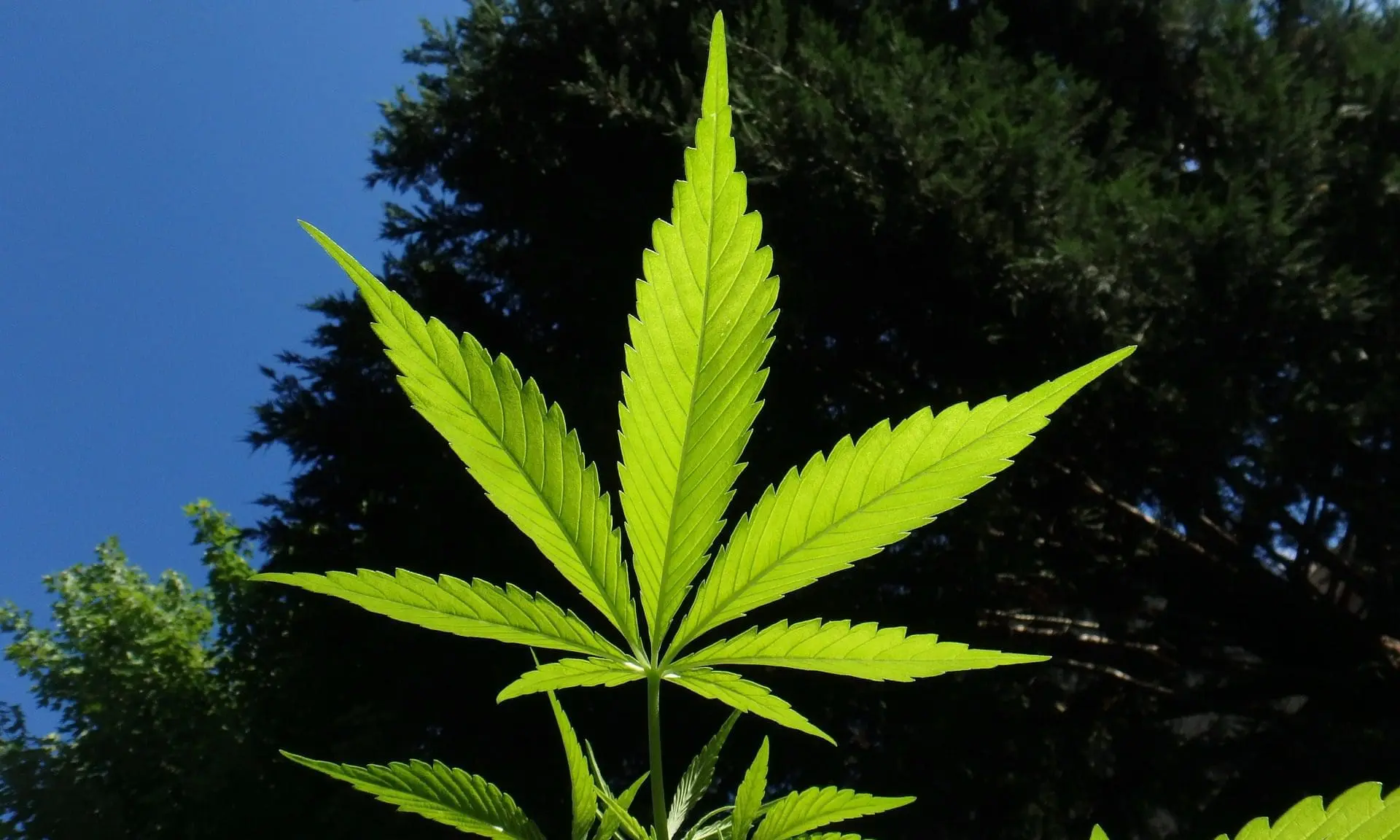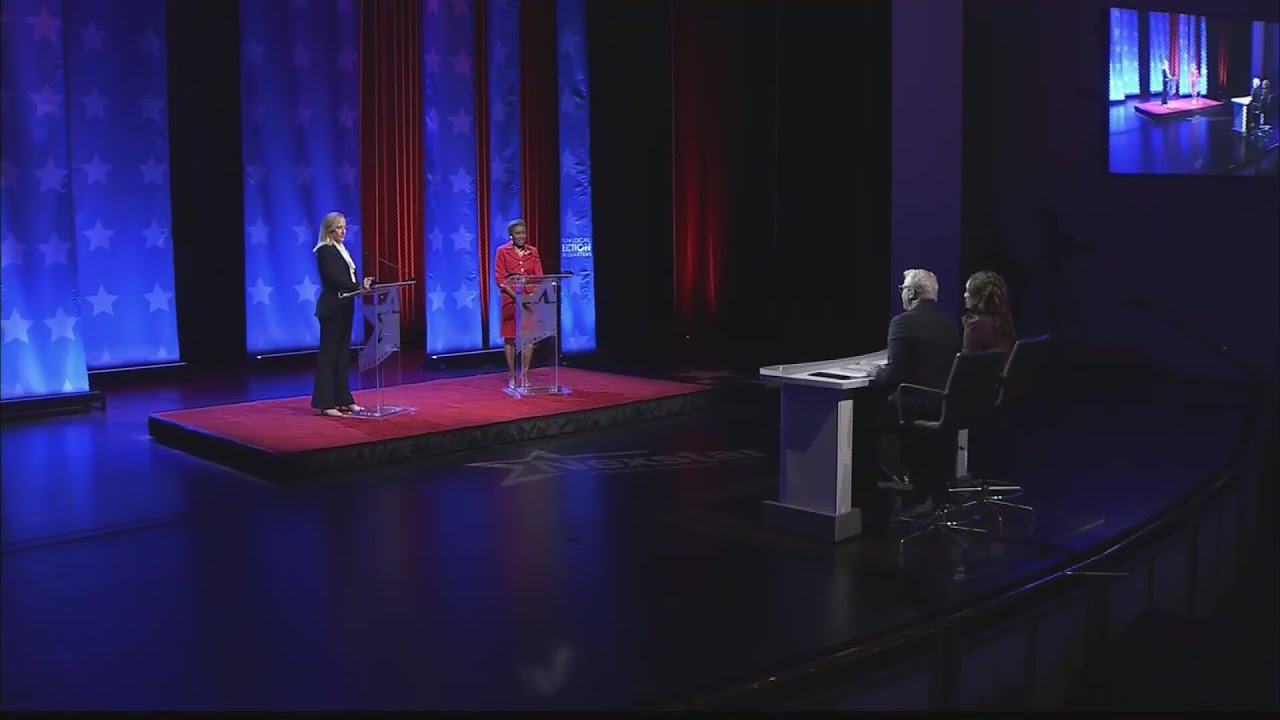Politics
Virginia Gubernatorial Candidates Clash On Marijuana At Debate, With GOP Nominee Worrying Users Could ‘Blow Everything Up’

Candidates for Virginia governor clashed on marijuana policy at a debate on Thursday—with the Republican nominee saying that while she supports medical cannabis, she had a zero-tolerance policy for employee consumption as the owner of a utility repair business.
She feared that workers who tested positive for THC while working with gas and electricity would “blow everything up,” the GOP contender said.
During a gubernatorial debate, both gubernatorial candidates—former U.S. Rep. Abigail Spanberger (D-VA) and current Lt. Gov. Winsome Earle-Sears (R)—were pressed on marijuana policy issues.
Spanberger, who supports legalization, was asked about public safety considerations for the establishment of a potential cannabis market that she’s pledged to support if elected. The candidate said simply that “it’s important that there be transparency in what is available on the market.”
“As a former federal agent who worked narcotics cases, as a CIA officer who tracked transnational criminal organizations, as the only person on stage who’s had a bill signed into law by President Trump restricting fentanyl flowing into our country and tightening our border security, and as the only person on stage with the endorsement of the Police Benevolent Association, it is extraordinarily important that we have transparency and that there is a clear market in order to be enforced,” she said.
The moderator then directed a question at Earle-Sears, pointing out that under the administration in which she currently serves, the governor has twice vetoed legislation to create a commercial marijuana market in the commonwealth, despite the enactment of legalization of possession and cultivation by adults.
Asked whether she would take a different approach and allow for commercial sales if presented with such a bill, the lieutenant governor said, “I believe in medicinal marijuana. I believe it has value.”
“But, you know, I had a business—and when I had my business and my employees came up positive for marijuana, they couldn’t work for me,” she said. “They couldn’t drive my trucks. They couldn’t go in and repair anything. We were working on gas. We’re working on electric. We can’t afford to have people who are working and they don’t know what they’re doing. They’ll blow everything up.”
Earle-Sears has staunchly opposed allowing Virginia to create a commercial adult-use cannabis market, going so far as to say that marijuana is a gateway drug and suggesting that legalization is “decimating communities.”
Spanberger, for her part, told Marijuana Moment last month that, “as Virginia takes steps toward creating a legalized retail market for cannabis,” it needs a “clear strategy to set up a market that is safe for consumers, transparent for businesses, and fair to entrepreneurs.”
She added that it’s her stance that “revenue from commercial cannabis products must return to Virginia communities and be reinvested for purposes like strengthening our public schools.”
If elected, Spanberger said she will “work with leaders in the General Assembly to find a path forward that both prioritizes public safety and grows Virginia’s economy.”
Meanwhile, earlier this week a Virginia legislative commission convened another meeting where lawmakers and advocates discussed plans to prepare the state to legalize recreational marijuana sales.
Del. Paul Krizek (D), chair of the Joint Commission to Oversee the Transition of the Commonwealth into a Cannabis Retail Market, began Monday’s meeting by noting it would be the second-to-last for the body—saying that at the next and final one in December, members will “go over the bill that we are working on now.”
The plan is for the body to suggest a proposal that the full legislature can consider passing in the 2026 session that begins in January.
Use and possession of marijuana has been legal in Virginia since 2022, but retail sales remain forbidden—a situation that’s helped fuel a multibillion-dollar illicit market. Despite efforts by Democrats in past years to legalize and regulate the retail system, Gov. Glenn Youngkin (R) has stood in the way of the reform, vetoing proposals passed by lawmakers during each of the last two sessions.
At the legislative commission’s first meeting in July, members discussing broad regulatory considerations and other issues related to THC potency, the hemp market and more. In August, the panel focused on cannabis taxes and revenue.
Meanwhile, a top Democratic Virginia senator recently said the state should move forward with legalizing recreational marijuana sales—in part to offset the Trump administration’s cuts to federal spending in support of states.
While the legislature has twice passed bills to create a regulated commercial cannabis market after the state legalized possession and use by adults in 2022, Youngkin vetoed both proposals.
But with anticipated increases in spending in Virginia resulting from various federal policy initiatives such as the withdrawal of federal welfare dollars to states, Senate President Pro Tem Louise Lucas (D) said it’s time to get serious about alternative revenue, which should include legalizing marijuana sales.
Photo courtesy of Philip Steffan.




